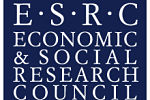The success of ‘naming and shaming’: league tables have a positive impact on performance of schools and hospitals

This research focuses on the impact of league tables on school and hospital performance.
About the research
Improving performance across public services is a consistent aim for government and a focus for ongoing reform. How to best manage public services in order to achieve such improvement is both highly politically contentious and the subject of much debate and research. Here we report the results of two ‘natural experiments’ on alternative models of governance for schools and hospitals that provide robust evidence on the effects on performance of those models.
Both experiments exploit Welsh devolution in 1999, which led to a divergence in governance systems between Wales and England for both schools and hospitals (much else remained unchanged). This enables us to isolate the impact of specific changes to one country’s governance structures, using the other as a control group. Both changes involved systems of transparent public rankings, or league tables.
For schools, Wales abolished secondary school league tables in 2001 while their annual publication continued in England. For hospitals, England introduced a ‘star rating’ system for hospitals in 2000 while Wales did not. Two separate studies, using national administrative data on all state schools and hospitals, analysed the effects of these policy changes on student performance and hospital waiting times respectively.
Policy implications
- In order to achieve improvements in measured public service outcomes, it is not sufficient to simply publish better comparative information on providers’ performance: external incentives are also required.
- Transparent public rankings are effective in generating incentives for improved performance by inflicting reputational damage through ranking, but they are unpopular with those providers who are ‘named and shamed’.
- This unpopularity may mean that, for political sustainability, such public rankings may need to be applied (and disguised?) as part of a model of ‘choice and competition’ rather than overtly relying on reputation effects to drive performance improvements.
- Post devolution, the UK provides opportunities for quantitative, cross-national, comparative research that can inform policy and practice. In order to fulfil this potential, high quality, comparable data needs to be produced and made available.
Key findings
- The governance model of ‘trust and altruism’ resulted in worse reported performance in Wales as compared with England on what were each government’s key objectives.
- The key driver for improved performance came from the reputation effects of ‘naming and shaming’ in the Transparent Public Rankings model.
For schools:
- The abolition of school league tables had a negative impact on school performance in Wales, relative to England, by almost two GCSE grades per student per year on average.
- This effect was concentrated in the lower 75% of schools, with the poorest and lowest average ability schools falling behind the most. The results were not driven by English schools ‘gaming’ the league tables after 2001, and did not vary by the degree of competition faced by schools.
For hospitals:
- The introduction of star ratings had a positive impact on waiting times in England relative to Wales. Waiting times for elective day case or ordinary admission to English hospitals fell, relative to Wales.
- English hospitals responded to specific targets by ‘tail gunning’: each year focusing on eliminating the long waits that put them at risk of missing the targets for that and the following year, at the expense of patients waiting much shorter times.
Further information
The full article upon which this policy brief is based: Bevan and Wilson (2013), Does ‘naming and shaming’ work for schools and hospitals? Lessons from natural experiments following devolution in England and Wales, Public Money and Management, 33(4): 245-252
A summary of the article published by the Solace Foundation Imprint as part of a broader piece on ‘Benchmarking for Improvement’
The original studies: Burgess, Wilson and Worth (2010), A natural experiment in school accountability: the impact of school performance information on pupil progress and sorting, CMPO Discussion Paper 10/246: bris.ac.uk/cmpo/publications/ papers/2010/abstract246.html
Besley, Bevan and Burchardi (2009) Naming and shaming: the impacts of different regimes on hospital waiting times in England and Wales, CEPR Discussion Paper 7306: cepr.org/pubs/ dps/DP7306
Policy Briefing 2: 2013
The success of ‘naming and shaming’: league tables have a positive impact (PDF, 646kB)
Contact the researchers
Dr Deborah Wilson, Centre for Market and Public Organisation and Director of PolicyBristol, University of Bristol:
d.wilson@bristol.ac.uk
Professor Gwyn Bevan, Department of Management, LSE:
r.g.bevan@lse.ac.uk
Authors
Professor Gwyn Bevan and Dr Deborah Wilson
